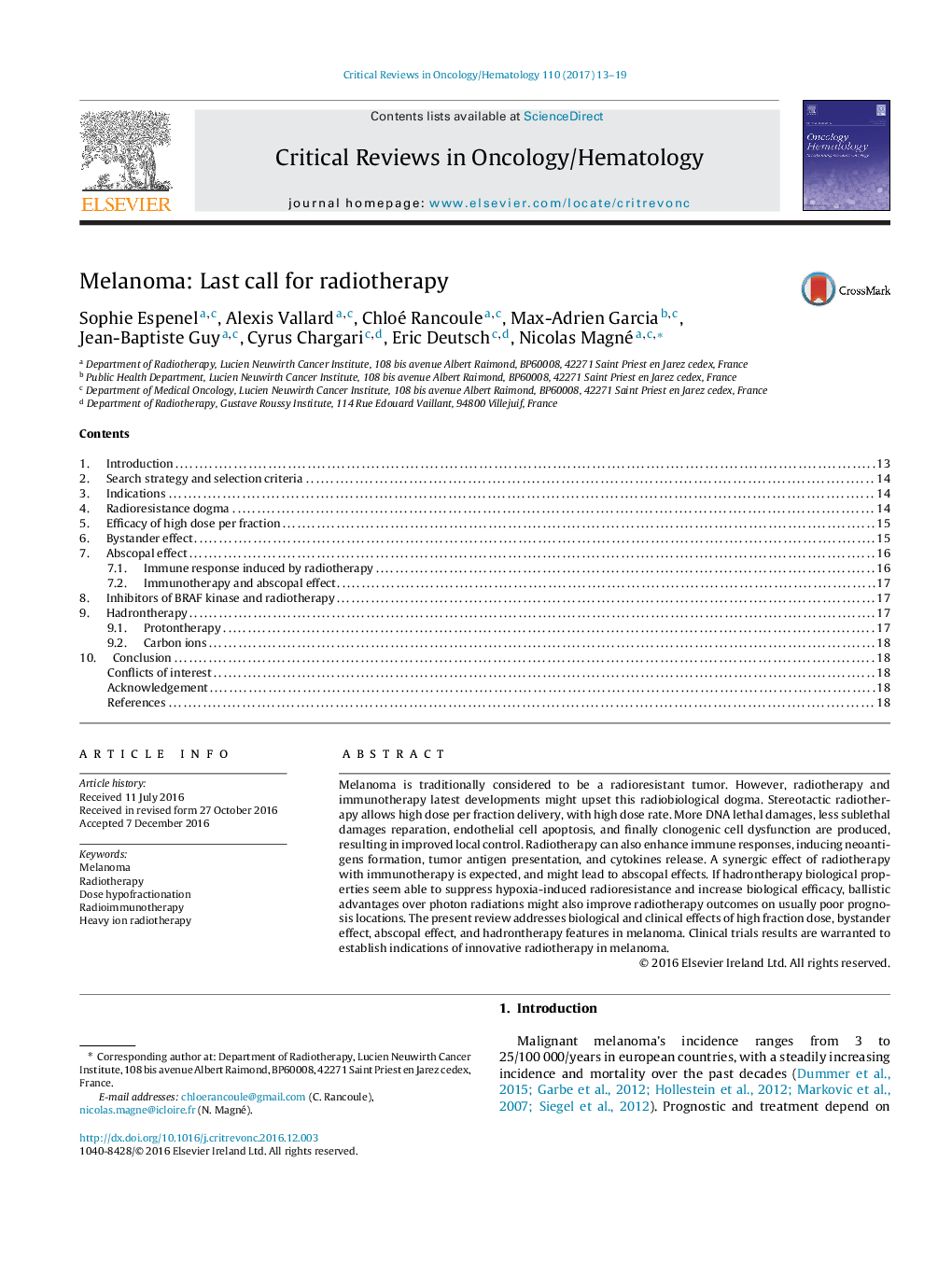| Article ID | Journal | Published Year | Pages | File Type |
|---|---|---|---|---|
| 5664154 | Critical Reviews in Oncology/Hematology | 2017 | 7 Pages |
â¢Indications of radiotherapy are currently reduced in melanoma.â¢Hadrontherapy and high doses radiotherapy might be interesting techniques in melanoma.â¢Immunotherapy might revolutionized the role of radiotherapy inducing abscopal effect.
Melanoma is traditionally considered to be a radioresistant tumor. However, radiotherapy and immunotherapy latest developments might upset this radiobiological dogma. Stereotactic radiotherapy allows high dose per fraction delivery, with high dose rate. More DNA lethal damages, less sublethal damages reparation, endothelial cell apoptosis, and finally clonogenic cell dysfunction are produced, resulting in improved local control. Radiotherapy can also enhance immune responses, inducing neoantigens formation, tumor antigen presentation, and cytokines release. A synergic effect of radiotherapy with immunotherapy is expected, and might lead to abscopal effects. If hadrontherapy biological properties seem able to suppress hypoxia-induced radioresistance and increase biological efficacy, ballistic advantages over photon radiations might also improve radiotherapy outcomes on usually poor prognosis locations. The present review addresses biological and clinical effects of high fraction dose, bystander effect, abscopal effect, and hadrontherapy features in melanoma. Clinical trials results are warranted to establish indications of innovative radiotherapy in melanoma.
